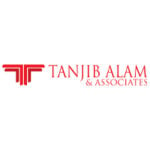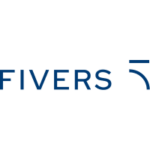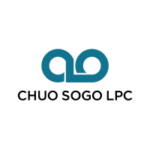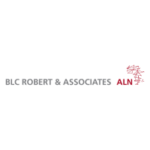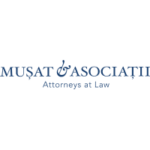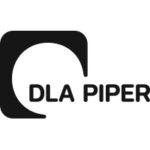-
What are the national authorities for banking regulation, supervision and resolution in your jurisdiction?
In general, banking activities in Indonesia are supervised and regulated by Indonesia’s Financial Services Authority (“OJK”). The OJK is also responsible for supervising and regulating the activities in the field of (i) capital markets, derivatives financial instruments, and carbon markets, (ii) insurance, guarantees and pension funds, (iii) financing institutions, venture capital, micro finance and other financial institutions, and (iv) technology innovation in the financial sector, including, digital financial assets and crypto-assets.
Supervision of payment systems falls to the Indonesia’s central bank (Bank Indonesia, “BI”), a government body that is also responsible for the monetary sector and has the prime objective of achieving and maintaining stability of the Rupiah (IDR).
Banking resolution is handled by the Deposit Insurance Corporation (Lembaga Penjamin Simpanan,“LPS”) in coordination with OJK and Bank Indonesia as well the Committee on Financial System Stability (Komite Stabilitas Sistem Keuangan,“KSSK”).
-
Which type of activities trigger the requirement of a banking licence?
As stipulated in Law No. 7 of 1992 as lastly amended by Law No. 4 of 2023 on Financial Sector Development and Reinforcement, dubbed the Omnibus Law for the Financial Sector (the “Law 4/2023”) (the “Banking Law”), “accumulation of funds” from the public in the form of demand deposits, time deposits, deposit certificates, savings, or other forms of equivalent funds will need to be carried out by a party that has obtained a business license from OJK to operate as a commercial bank.
-
Does your regulatory regime know different licenses for different banking services?
Yes, the license granted would depend on the nature of the banks. Sharia and rural bank licenses differ from those of conventional banks. A bank engaged in forex transactions also needs to have a specific license. Furthermore, a non-Indonesian bank that is a licensed bank in a foreign country can establish a representative office in Indonesia.
By virtue of OJK Regulation no. No. 12/POJK.03/2021 on Commercial Banks (“OJK Reg. 12/2021’’), digital banks are now included. The regulation now allows commercial banks to run as banks that operate purely digitally and carry out their business electronically without physical branches except for one: the head office. Under OJK Reg. 12/2021, a digital bank may be set up through (i) the establishment of a new entity operated as a digital bank, or (ii) transformation of a conventional bank to become a digital bank.
-
Does a banking license automatically permit certain other activities, e.g., broker dealer activities, payment services, issuance of e-money?
No, none of the activities described above form part of banking services under a business license, and trigger additional licensing requirements. For example, to carry out broker-dealer activities, or payment services, either as card-based payment related activities, e-money related activities, payment gateways, or e-wallets (generally, classified as payment services provider activities) banks need to apply for a license for this activity.
In general, banks can carry out the following activities under the Banking Law:
- Gather funds from the public in the form of demand deposits, time deposits, deposit certificates, savings, and/or other forms of equivalent funds.
- Offer credit or financing activities based on sharia principles.
- Carry out activities in payment systems.
- Place funds in, borrow funds from, or lend funds to other banks, whether by using papers, means of telecommunication or demand drafts, cheques or other means.
- Issue and/or undertake commercial paper transactions for its own interest or its customers.
- Provide a place to deposit valuable goods and papers.
- Conduct foreign exchange activities.
- Perform factoring company activities.
- Undertaking custodial activities.
Perform other activities with OJK’s approval.
-
Is there a “sandbox” or “license light” for specific activities?
Yes, there is a regulatory sandbox specific to financial technology (fintech). In this case, fintech in Indonesia is separated by two regimes: (i) under BI, for fintech-related payment systems, and (ii) under OJK, for other fintech-related activities.
-
Are there specific restrictions with respect to the issuance or custody of crypto currencies, such as a regulatory or voluntary moratorium?
Indonesia has not undertaken any measures yet to restrict the issuance of cryptocurrencies, so this matter thus far remains unregulated.
Law No. 4/2023 and its implementing regulation transfer the oversight and supervisory authority over digital financial assets, including crypto assets and financial derivatives, from Bappebti to OJK. Subsequently, OJK issued Regulation No. 27/2024 on the Trading of Digital Financial Assets, including Crypto Assets, which came into effect on January 10, 2025 (“OJK Reg. 27/2024“).
The key players involved in the crypto-asset trading ecosystem are, OJK, crypto exchanges, Crypto-asset clearing agencies, crypto-asset traders (commonly known as crypto-asset trading/exchange platforms), and crypto asset depository agencies.
In this regard, the custody of cryptocurrencies is regulated within a context in which crypto-asset traders may store crypto-assets offline or online.
Under the current regulatory framework, as outlined in OJK Reg. No. 27 of 2024, there is no blanket or voluntary moratorium imposed on either the issuance or custody of cryptocurrencies. Nevertheless, the regulation sets out stringent guidelines to ensure market stability and robust consumer protection.
OJK Reg. 27/2024 specifies that Crypto-asset Traders may store crypto-assets in ‘cold storage’ to at least 70% of the total crypto-asset value. For this purpose, crypto-asset traders must cooperate with licensed crypto asset depository agencies and have their own systems and mechanisms for utilization of tokens and/or wallet facilities. On the other hand, ‘hot storage’ or crypto-asset custody online is permitted for no more than 30% of the total crypto-assets stored.
-
Do crypto assets qualify as deposits and, if so, are they covered by deposit insurance and/or segregation of funds?
No, they do not constitute deposits per se from an Indonesian law perspective; they are not classified as traditional deposits. Consequently, they do not fall under the deposit insurance scheme, such as that provided by the LPS, which is reserved for bank deposits.
However, regulatory measures under frameworks like OJK Reg. No. 27 of 2024 require crypto-asset traders to implement strict custody arrangements, including the segregation of client funds. Crypto-asset depository agencies must cooperate with a duly licensed insurance company to insure the crypto-assets stored by crypto-asset traders with them. Furthermore, crypto-assets in hot storage (or online) by Crypto-asset Traders must be insured by them.
-
If crypto assets are held by the licensed entity, what are the related capital requirements (risk weights, etc.)?
At the time of writing, the current regulatory framework does not prescribe a specific risk weight exclusively for crypto assets held by licensed entities (presumably, referring to banks and other financial institutions) specifically for crypto asset holdings. Given the high-risk nature of crypto assets, market practice generally suggests that such exposures would attract risk weights comparable to other high-risk alternative assets. Licensed entities are expected to maintain robust capital buffers sufficient to absorb potential losses from adverse market movements, with their risk assessments reflecting the unique risk profile of crypto asset holdings.
-
What is the general application process for bank licenses and what is the average timing?
Banking licenses are issued by OJK.
The issuance of a banking license involves two stages: issuance of (i) in-principle approval (to engage in preparation for the establishment of banks) and (ii) business license. Under OJK Reg. 12/2021, in-principle approval is valid for only six months from its issuance. Banks are further prohibited from engaging in any banking business until the business license is obtained.
It is difficult to determine average timing given that it may involve several turnarounds during the process of an application as determined by OJK. Assuming the application, along with its supporting documents, is deemed satisfactory, a business license will be issued by OJK within 60 working days. The entire process may typically take around 6 months to complete. Despite the foregoing, in practice, OJK encourages every applicant wishing to enter the Indonesian banking market to acquire an existing business, rather than establish a new entity. In this respect, it is prudent for a potential buyer to allocate about 6 months to 1 year for the entire acquisition process.
-
Is mere cross-border activity permissible? If yes, what are the requirements?
Cross-border activity remains unregulated in Indonesia. Nevertheless, as mentioned in our response to point 2, the provision of banking services within Indonesian territory triggers the requirement of a banking license. As with foreign banks, they may perform some banking activities in Indonesia through a licensed branch. Indonesian banks can incorporate branches or offices abroad, after obtaining a license issued by OJK.
-
What legal entities can operate as banks? What legal forms are generally used to operate as banks?
Commercial banks, as Indonesian legal entities, may be established and operate as the following entities: (i) limited liability company, (ii) cooperative, and (iii) region-owned limited liability company, with most banks operating in Indonesia as limited liability companies.
By virtue of amendments introduced by Law 4/2023, commercial banks can now only take a legal form as limited liabilities companies. This is anticipated, given most banks in Indonesia are operating as limited liability companies. An exception applies to rural banks, which can be either a limited liability company or a cooperative.
-
What are the organizational requirements for banks, including with respect to corporate governance?
Indonesian banks are required to establish and maintain the following committees to assist the board of commissioners: (i) an audit committee, (ii), risk monitoring committee, and (iii) a remuneration and nomination committee. Other core features of good corporate governance for banks in Indonesia, among others, include the requirement to have independent commissioners, internal and external auditors, and risk management. Furthermore, Sharia banks must establish a Sharia supervisory board.
-
Do any restrictions on remuneration policies apply?
Yes, Indonesian banks must adopt remuneration policies and practices.
Commercial banks must prepare a policy that considers effective risk management, banks’ financial stability, capital adequacy and capital strengthening, short-term needs and long-term liquidity and potential revenues in the future. The board of commissioners (with assistance of remuneration and nomination committees) monitors remuneration. The policy must include business scale, business complexity, peer group, inflation rate, condition, and financial capacity, while encouraging prudent risk-taking
The banks are required to disclose their remuneration policy in their annual report on good corporate governance, as required for commercial banks.
-
Has your jurisdiction implemented the Basel III framework with respect to regulatory capital? Are there any major deviations, e.g., with respect to certain categories of banks?
Yes, Indonesia has implemented the Basel III framework with respect to regulatory capital.
Indonesia has set out the obligations on minimum capital requirements for different banks’ risk profile grade, which is calculated based on bank’s risk-weighted assets. Such obligations are as follows:
- 8% of bank’s risk-weighted assets, for banks with grade 1 (risk profile),
- 9% – <10% of bank’s risk-weighted assets, for banks with grade 2,
- 10% – <11% of bank’s risk-weighted assets, for banks with grade 3, and
- 11% – 14% of bank’s risk-weighted assets, for banks with grade 4 or 5,
To determine capital adequacy according to bank’s risk profile, banks must have Internal Capital Adequacy Assessment Process (ICAAP). ICAAP is a method of a self-assessment for banks, which covers active supervision from the Board of Commissioners and Directors; capital adequacy assessment; monitoring and reporting; and internal control. After the banks carry out an ICAAP, OJK will evaluate the ICAAP result, which is called as Supervisory Review and Evaluation Process (SREP).
Indonesian commercial banks must meet the minimum threshold for first tier and second-tier capital, where the first-tier common equity (paid-up capital and disclosed reserves) being 4.5% of banks’ risk-weighted assets and first-tier capital being 6% of banks’ risk-weighted assets. The second-tier capital being a maximum of 100% of first-tier capital, either individually or consolidated with the banks’ subsidiaries.
Banks must set aside additional capital as a buffer against variations in economic and financial risk:
- a capital conservation buffer of 2.5% of the banks’ risk-weighted assets.
- To align with OJK Reg. 12/2021, in 2022, OJK issued OJK Regulation No. 27 of 2022, the amendment to OJK Regulation No. 11/POJK.03/2016 of 2016 Mandatory Minimum Capital Requirements for Commercial Banks (“OJK Reg. 11/2016”), in which the term ‘BUKU’, which previously referred to banks with certain core capital according to their level business activity classification in its predecessor, has now been changed to ‘KBMI’, as referred to in OJK Reg. 12/2021 – which is the grouping of banks based on core capital capitalization.
- Banks must adhere to capital conservation buffer requirements apply to any bank classified as ‘KBMI 2’, ‘KBMI 3’, or ‘KBMI 4’. KBMI 2 are banks with core capital of IDR 6 trillion to IDR 14 trillion; KBMI 3 have IDR 14 trillion to IDR 70 trillion, and KBMI 4 have core capital of more than IDR 70 trillion;
- a countercyclical buffer of 0% to 2.5% of bank’s risk-weighted assets (applies to all banks); or
- capital surcharge for systemic banks of 1% to 2.5% of the banks’ risk-weighted assets (applies to systemic banks. Systemic banks are defined as banks that may have systematic financial impact from various elements, including the amount in owned assets, capital levels and the obligations that they hold, banks’ networks or relationships with other sectors, and the complexity of the bank’s transactions or services.
As to foreign banks branch offices, they must satisfy Capital Equivalency Maintained Assets (CEMA), which is the fund that must be allocated to the bank’s financial assets. CEMA is set at a minimum of IDR 1 trillion.
-
Are there any requirements with respect to the leverage ratio?
Yes, banks are obliged to meet a mandatory leverage ratio, which should be calculated by comparing core capital against total exposure, as recorded in bank financial statements. The leverage ratio must not, at any time, fall below 3%. The leverage ratio must be calculated in Rupiah currency.
If commercial banks have subsidiaries, the mandatory leverage ratio applies to both banks, either as separate or consolidated entities. Commercial banks must also report their fulfillment of the leverage ratio to OJK, which should contain total leverage ratio exposure and leverage ratio calculations. The report is made quarterly in March, June, September, and December. This report must also be published on (i) a bank’s official website and 1 Indonesian newspaper, announcing the bank’s fulfillment of the quarterly reporting requirement.
-
What liquidity requirements apply? Has your jurisdiction implemented the Basel III liquidity requirements, including regarding LCR and NSFR?
Yes, Indonesia has implemented both Liquidity Coverage Ratio (LCR) and Net Stable Funding Ratio NSFR), forming part of bank liquidity risk policy.
As is the case in other jurisdictions, LCR aims to preserve a bank’s short term liquidity stability by ensuring that it has High Quality Liquid Assets (“HQLA”) by the estimated total net cash outflows over a 30-day stress scenario. Fulfillment of LCR of a minimum of 100% shows that banks have adequate liquidity.
For NSFR, commercial banks are required to maintain their liquidity adequacy using NSFR, which is set at a minimum of 100%. The value of NSFR is obtained by comparing the value of Available Stable Funding (“ASF”) with the value of Required Stable Funding (“RSF”). A bank’s ASF means the amount in stable liabilities and equity that remain in the bank within 1 year, while RSF means the total assets and off-balance sheet exposure.
-
Which different sources of funding exist in your jurisdiction for banks from the national bank or central bank?
In certain situations, such as financial crises, BI may provide emergency liquidity support to systemic banks under the KSSK decree, backed by government guarantees. See a similar discussion on this in our response to point 25 below.
-
Do banks have to publish their financial statements? Is there interim reporting and, if so, in which intervals?
Yes, banks are obliged to submit to OJK and make publicly available the following reports: (i) balance sheet and profit-and-loss accounts, (ii) risk exposure and capital, (iii) Information or Material facts, (iv) prime lending rate, and (v) other reports.
The above reports must be made periodically, as follows: balance sheet and profit-and-loss, on a monthly, quarterly and yearly basis risk exposure and capital, on a quarterly and yearly basis information or material facts, on a supplementary basis prime lending rate, on a monthly basis other reports, annually.
-
Does consolidated supervision of a bank exist in your jurisdiction? If so, what are the consequences?
Yes, consolidated supervision of a bank exists in Indonesia. One function of the OJK is to implement an integrated regulation and supervision system for all activity in the financial services sector. In this regard, OJK implements an integrated supervision model for a financial conglomerate. A financial conglomerate is a group of financial services institutions that relate to each other due to a relation in ownership and/or control. The financial conglomerate has a structure that consists of the main entity (parent financial services institutions of a financial conglomerate or financial services institutions appointed by the controlling shareholders of the financial conglomerate) and:
- subsidiaries; and/or
- sister companies and their subsidiaries.
Subsidiaries refers to legal entities or companies owned or controlled by a financial services institution directly or indirectly, in the country or overseas; and conduct their business activities in the financial services sector. Sister companies refers to several financial services institutions that are separated institutionally and/or legally, but are owned and/or controlled by the same controlling shareholders.
A financial conglomerate comprises the following financial services companies:
- banks;
- insurance and re-insurance companies;
- securities companies; and/or
- loan providers.
Financial conglomerates should implement integrated good corporate governance and risk management comprehensively and effectively. Further, the main entity must also regularly submit an assessment report and periodical reports to OJK on the implementation of such integrated good corporate governance and risk management. The purpose of this implementation of integrated supervision is generally to develop prudential principles compliance and to ensure effective supervision by OJK of any potential risk of the financial activities of the entities within the financial conglomerate.
-
What reporting and/or approval requirements apply to the acquisition of shareholdings in, or control of, banks?
The purchase of bank shares is considered to cause transfer of control in the event that: share ownership:
- becomes 25% or more of the paid-up capital of the bank;
- becomes less than 25% of the paid-up capital of the bank but determines directly and indirectly the management and/or policies of the bank;
- become the largest in the bank, or
- is not the largest but is able to determines directly or indirectly the management or policies of the bank
For the purpose of the acquisition or change of control of a bank, an approval from OJK is required on the change of control of the bank as well as a fit and proper test for the prospective controlling shareholder(s).
If the purchase of bank shares causes the ownership of a prospective shareholder to become 25% or more but does not result in a change of control of the bank, the prospective shareholder will still need to undergo a fit and proper test.
-
Does your regulatory regime impose conditions for eligible owners of banks (e.g., with respect to major participations)?
Yes, please refer to the elaboration below.
Maximum Shareholding in Commercial Bank
Pursuant to Regulation of Financial Services Authority No. 56/POJK.03/2016 on Share Ownership in a Commercial Bank (“Reg. 56/2016”), the maximum limitation on shareholding in a bank is determined by the following criteria:
- shareholder categories:
- 40% of the bank capital, for a bank financial institution and non- bank financial institution;
- 30% of the bank capital, for a non- financial institution;
- 20% of the bank capital; 25%) of the bank capital (for a sharia bank) for individual shareholders.
- relationship between the shareholders: Any shareholder having the following relationship status will be determined as 1 (one) party:
- Ownership relation;
- Family relationship up to second degree; and/or
- Any cooperation or action to achieve the same purpose in controlling the bank (by acting in concert) or without written agreement so that such action or cooperation creates options rights to hold the shares.
The above limitation is not be applicable to:
- Central Government; and
- Institution functioning to handle and/or salvage the bank.
Requirements on Maximum Shareholding in a Commercial Bank
In order to obtain the maximum shareholding as described in Section II.1.1 above, prospective shareholders must obtain approval from the OJK. Specifically, several requirements are imposed on a prospective shareholder to obtain such maximum share ownership in a bank, which include:
- Foreign controlling shareholder, to fulfill the following requirements:
- Commitment to support economic development in Indonesia;
- Obtain a recommendation from the relevant financial supervisory authority;
- Have a minimum rating of:
- 1 above the lowest rating of investment for a bank financial institution;
- 2 above the lowest rating of investment for a non-bank financial institution;
- 3 above the lowest rating of investment for a non-financial institution;
- A bank financial institution may hold more than 40% of a bank’s capital provided that it:
- Obtains Bank Soundness Level with a Composite Rate of 1 or 2 or other equivalent rate for a bank financial institution domiciled abroad;
- Fulfills the Minimum Capital Adequacy Requirement (Kewajiban Penyediaan Modal Minimum,“KPMM”) based on the risk profile;
- Core capital (tier-1) is at least 6%;
- Obtains a recommendation from the relevant financial supervisory authority;
- A financial institution that gone public;
- Has a commitment to purchase equity notes issued by the Target Bank;
- Has a commitment to acquire the bank within a certain period of time;
- Has a commitment to support economic development in Indonesia.
A bank must fulfil the following criteria:
- To go public to achieve public ownership at a minimum of 20% of the bank‘s capital within 5 years of the bank financial institution acquiring the shares upon OJK approval;
- To obtain approval to issue equity notes.
Exemption on holding more than the Maximum Shareholding in a Commercial Bank
- The general procedures to purchase the shares of a Bank are by way of:
- purchasing the shares at the maximum threshold that is subject to its shareholder category;
- increasing the shareholding threshold (subject to the approval of OJK), provided that the bank has a Bank Soundness Level of rating 1 or 2 for 3 consecutive years within the 5-year period.
- However, this provision will not be applicable to any bank financial institution that held shares of the bank prior to 13 July 2012.
- Shareholders may hold more shares than the maximum limitation, if they purchase the shares of:
- i)a bank being handled or salvaged by the Indonesia Depository Insurance Corporation; or ii) a bank with a special supervisor; in which within 20 years of the purchase, the shareholders will adjust the shareholding threshold pursuant to Reg 56/2016;
- a bank under intensive supervision, in which within 15 years of the purchase, its share-holders will adjust the shareholding threshold pursuant to Reg 56/2016.
- A bank that is the result of a merger or amalgamation from the origin bank with a good governance level rated 1 or 2. In the event that a bank that is a result of merger or amalgamation experiences the following:
- decrease of Bank Soundness Level to rating 3, 4, or 5 within 3 consecutive years;
- sells the shares at the initiative of the shareholders; the relevant controlling shareholders will then adjust its threshold pursuant to Reg 56/2016 within 10 years of the merger or amalgamation;
- A bank that is the result of a merger or amalgamation from the origin bank with a good governance level rated at 3, 4, or 5; the shareholders will then adjust its shareholding threshold pursuant to Reg 56/2016 within 20 years of the merger or amalgamation.
- Based on Article 19 of Reg 56/2016, a shareholder may hold shares above the maximum limitation as provided in Reg 56/2016 subject to OJK discretion. Moreover, Reg 56/2016 stipulates certain administrative sanctions on shareholders who fail to adjust their maximum limitation on share ownership, from a warning letter to a suspension of business operations of the bank concerned.
- shareholder categories:
-
Are there specific restrictions on foreign shareholdings in banks?
The maximum foreign share ownership of an Indonesian commercial bank is 99%, and at least 1% of the Bank’s unlisted shares must be owned by Indonesian citizen(s) or entity(s).
-
Is there a special regime for domestic and/or globally systemically important banks?
No, there is no differentiation on the special regime for domestic and/or globally systemically important banks. Generally, there only exist (i) failing banks with systemic impact; and (ii) a failing banks with non-systemic effect; this is applicable to all Indonesian banks.
-
What are the sanctions the regulator(s) can order in the case of a violation of banking regulations?
Generally, depending on the type of violation, the following sanctions may be imposed on banks in the case of a violation of banking regulations:
- Monetary fine;
- Written warning;
- Downgrading of bank’s soundness level;
- Suspension of business activities of a bank’s branch office;
- Freezing of the bank’s business license.
-
What is the resolution regime for banks?
As indicated in our response to point 1 above, resolution for a failing bank in Indonesia is handled by the Deposit Insurance Corporation (Lembaga Penjamin Simpanan, “LPS”) in coordination with OJK and BI, as well as KSSK.
Indonesia’s bank resolution framework is governed primarily by Law No. 9 of 2016 on the Prevention and Resolution of Financial System Crises, as amended by Law No. 4 of 2023, along with its implementing regulations, including OJK Regulation No. 5 of 2024 on the Determination of the Status of Supervision and Problem Handling of Commercial Banks (“OJK Reg. 5/2024”). Indonesia is a member of the Financial Stability Board (FSB) and implements FSB Key Attributes of Effective Resolution Regimes under these laws.
As stipulated in Law of the Republic of Indonesia No. 9 of 2016 on Prevention and Handling of Monetary System Crisis, as amended by Law 4/2023 (“Law 9/2016”), the systemic bank should develop a recovery plan which comprises the obligation of the ultimate shareholders to conduct bail-in (e.g. convert the debt to equity). OJK Reg. 5/2024 mainly governs recovery actions taken by banks while facing crisis related to capital, liquidity, profitability, and asset quality.
Failure in profitability aspects can be addressed through cost efficiency programs, sale of fixed assets, and/or other recovery options, such as increasing collection activity. Meanwhile, issues caused by low asset quality can be resolved through credit restructuring, productive asset write-offs, and/or other recovery options, such as transfer of credit collection rights (cessie).
If those measures are implemented and the bank continues to face challenges that threaten its business continuity and cannot be restored to a stable condition by OJK within its authority, OJK will designate the bank as a bank under resolution. Written notification of this designation will be provided by OJK to the bank, LPS, and BI accordingly.
-
How are client’s assets and cash deposits protected?
The clients’ deposits will be protected by the LPS. It will insure bank deposits in the form of current accounts, term deposits, certificates of deposit, saving accounts, or other forms of deposit that are the equivalent of the aforementioned forms. Currently, the amount of deposits insured by LPS for each customer in a bank is set at Rp2billion.
The obligation for LPS to pay claims to depositors arises once the bank’s business license has been revoked. LPS is authorized to obtain data on the depositors and other information deemed necessary once the bank’s business license is revoked by OJK or the bank in order to proceed with the calculation and payment of insurance claims. Eligible deposits will thereafter be determined by LPS after such reconciliation and verification of data obtained, within 90 working days from the day the bank’s license is revoked. LPS will then be obliged to start paying the eligible deposits determined within 5 days of the date the reconciliation and verification began. In the event depositors also have loans from the bank, the insurance payment is made after the loans are subtracted from the deposits, as governed by the applicable laws and regulations.
LPS may suspend payments to depositors if they are suspected by LPS, OJK or any other law enforcer to have perpetrated a violation of the law which resulted in the loss or endangerment of the bank’s business, causing the bank to fail. Once this suspicion has been legally proven by the issuance of a legally binding decision, the claim is not eligible to be met. Nonetheless, this suspension must be set aside and payment must be made, if it was proven otherwise. Furthermore, if based on the reconciliation or verification of data, (i) the deposit(s) are not recorded in the bank, (ii) the depositors are the parties that benefited from non-prudent banking practices, or (iii) the depositors are considered to be the parties responsible for the bank’s insolvency, the insurance claim shall be deemed as ineligible by LPS. Payment of insurance claims may be met in cash or with any other equivalent payment instrument in Rupiah currency.
-
Does your jurisdiction know a bail-in tool in bank resolution and which liabilities are covered? Does it apply in situations of a mere liquidity crisis (breach of LCR etc.)?
As discussed in point 25 above, Law 9/2016 provides a bail-in tool in bank resolution in Indonesia which also applicable to banks that deal with mere liquidity crisis. According to this law, during the banking restructuring program, LPS is authorized, among other things, to: (a) require the shareholders of the bank to inject additional capital in accordance with a calcula-tion determined by LPS, (b) convert the bank’s liability to certain creditors into the bank’s capital, or (c) sell, auction or assign the bank’s receivables or hand over the management of such receivables to another party without any approval from the debtors.
The bail‐in tool is intended for use when a bank is fundamentally failing and cannot be stabilised through conventional recovery measures. It is not applied in situations of a temporary liquidity crisis, such as a breach of LCR, where liquidity support from Bank Indonesia or other short-term recovery options would be more appropriate.
-
Is there a requirement for banks to hold gone concern capital (“TLAC”)? Does the regime differentiate between different types of banks?
A bank classified as one with systemic impact will be required to maintain a capital surcharge, which is additional capital to reduce the negative impact of financial and economic system stability in the event of failure of a bank with systemic impact by increasing the bank’s capability to absorb the loss.
The amount of capital surcharge will be within the range of 1% to 3.5% of Risk Weighted As-sets of the bank and will be determined based on a classification of the bank as having a systemic impact. This capital surcharge must be fulfilled using common equity tier I.
The above requirement shall be applicable for all types of banks.
-
Is there a special liability or responsibility regime for managers of a bank (e.g. a "senior managers regime")?
In Indonesia, there is no specific “senior managers regime” like in some other jurisdictions. However, the OJK’s fit and proper test requirements, as discussed in point 20 above, will also apply to members of board of directors and board of commissoners.
-
In your view, what are the recent trends in bank regulation in your jurisdiction?
With the enactment of the Law 4/2023, the Government confirms their commitment to support the digitalization in the banking industry by reconfirming the implementation of open banking where banks are allowed to open access to data and information of its customers to other financial services providers including operator of technology innovation in the financial sector based on the approval or for the interest of the customers through certain system or platform.
Additionally, to promote a healthy banking system, particularly within the sharia banking sector, the OJK will impose the obligation for sharia commercial banks and sharia business units to meet the minimum LCR and NSFR; these will be set out under a new regulation. While these obligations have long been applied to conventional banks, the OJK finally will impose this obligation on sharia banking as well. On a similar note, following the introduction of leverage ratio obligation for commercial banks in 2019, the OJK is currently preparing a similar regulation, targeting sharia commercial banks to have the same obligations of maintaining leverage ratio. Reflecting on the previous cyclical financial and economic crises, excessive leverage in the banking system poses risks for exposures recorded in the financial position report and for exposure to administrative transactions in the bank’s commitments and contingencies report. Therefore, imposing banks with leverage ratio obligation may prevent banks from having excessive leverage conditions.
-
What do you believe to be the biggest threat to the success of the financial sector in your jurisdiction?
Indonesia’s financial landscape is undergoing a profound digital transformation, with the rise of fintech, digital banking, and crypto assets, that promises increased efficiency and broader financial inclusion. However, this rapid pace of change also exposes vulnerabilities. As financial institutions increasingly rely on digital platforms, the risk of cyber-attacks, operational failures, and technological disruptions escalates. While regulators have made commendable efforts in updating frameworks as dicussed in our responses above, the digital frontier may outpace regulatory safeguards if risk management practices are not continuously enhanced. Ultimately, while digitalisation offers immense opportunities, it must be balanced with a more forward-looking regulatory approach.
Indonesia: Banking & Finance
This country-specific Q&A provides an overview of Banking & Finance laws and regulations applicable in Indonesia.
-
What are the national authorities for banking regulation, supervision and resolution in your jurisdiction?
-
Which type of activities trigger the requirement of a banking licence?
-
Does your regulatory regime know different licenses for different banking services?
-
Does a banking license automatically permit certain other activities, e.g., broker dealer activities, payment services, issuance of e-money?
-
Is there a “sandbox” or “license light” for specific activities?
-
Are there specific restrictions with respect to the issuance or custody of crypto currencies, such as a regulatory or voluntary moratorium?
-
Do crypto assets qualify as deposits and, if so, are they covered by deposit insurance and/or segregation of funds?
-
If crypto assets are held by the licensed entity, what are the related capital requirements (risk weights, etc.)?
-
What is the general application process for bank licenses and what is the average timing?
-
Is mere cross-border activity permissible? If yes, what are the requirements?
-
What legal entities can operate as banks? What legal forms are generally used to operate as banks?
-
What are the organizational requirements for banks, including with respect to corporate governance?
-
Do any restrictions on remuneration policies apply?
-
Has your jurisdiction implemented the Basel III framework with respect to regulatory capital? Are there any major deviations, e.g., with respect to certain categories of banks?
-
Are there any requirements with respect to the leverage ratio?
-
What liquidity requirements apply? Has your jurisdiction implemented the Basel III liquidity requirements, including regarding LCR and NSFR?
-
Which different sources of funding exist in your jurisdiction for banks from the national bank or central bank?
-
Do banks have to publish their financial statements? Is there interim reporting and, if so, in which intervals?
-
Does consolidated supervision of a bank exist in your jurisdiction? If so, what are the consequences?
-
What reporting and/or approval requirements apply to the acquisition of shareholdings in, or control of, banks?
-
Does your regulatory regime impose conditions for eligible owners of banks (e.g., with respect to major participations)?
-
Are there specific restrictions on foreign shareholdings in banks?
-
Is there a special regime for domestic and/or globally systemically important banks?
-
What are the sanctions the regulator(s) can order in the case of a violation of banking regulations?
-
What is the resolution regime for banks?
-
How are client’s assets and cash deposits protected?
-
Does your jurisdiction know a bail-in tool in bank resolution and which liabilities are covered? Does it apply in situations of a mere liquidity crisis (breach of LCR etc.)?
-
Is there a requirement for banks to hold gone concern capital (“TLAC”)? Does the regime differentiate between different types of banks?
-
Is there a special liability or responsibility regime for managers of a bank (e.g. a "senior managers regime")?
-
In your view, what are the recent trends in bank regulation in your jurisdiction?
-
What do you believe to be the biggest threat to the success of the financial sector in your jurisdiction?

